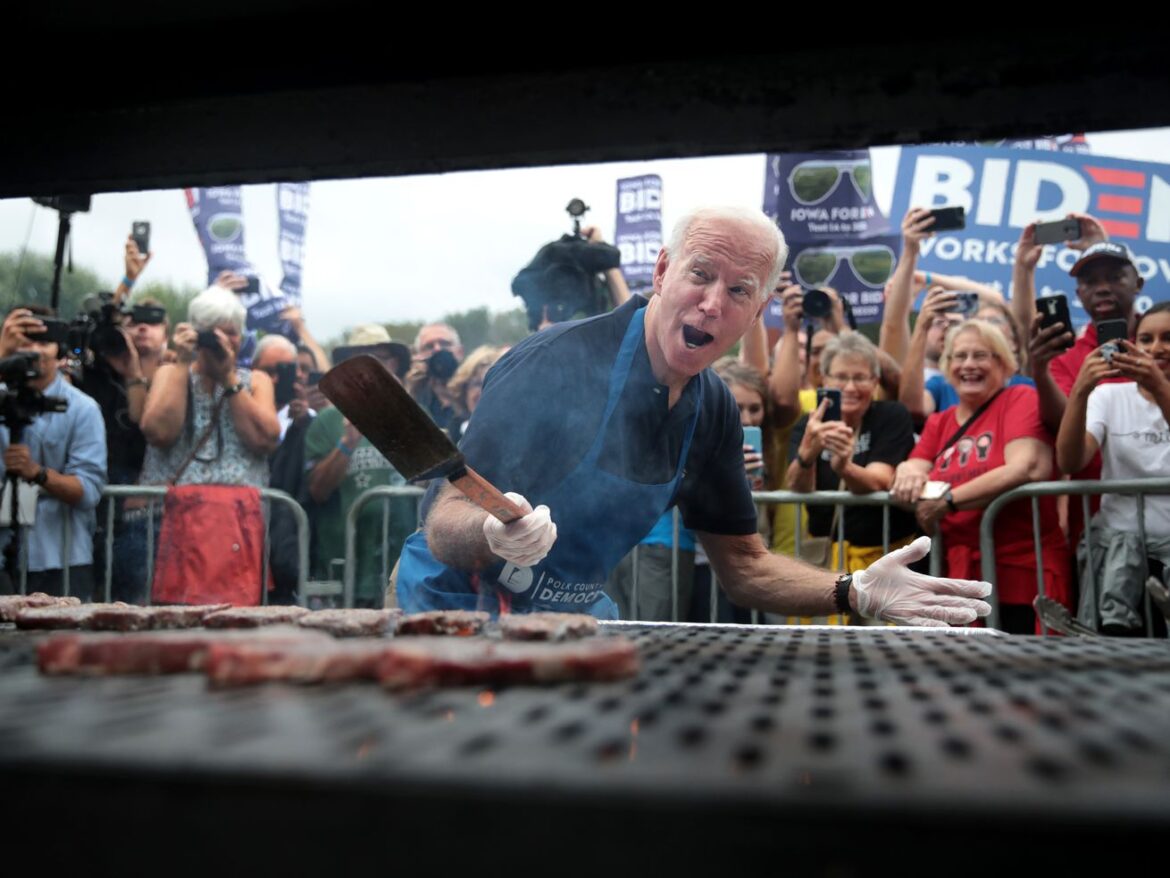Say goodbye to early states like Iowa and New Hampshire. Say hello to potentially years of chaos.
Joe Biden’s announcement of his candidacy released Tuesday is the incumbent’s fourth bid for the Democratic nomination for the presidency. It will be not only Biden’s first run for president as the presumptive nominee, but also the first without Iowa and New Hampshire firmly set at the top of the primary calendar. In early February, the Democratic National Committee formally voted to shake up its primary calendar and ratified a change to move South Carolina’s nominating contest first, while reducing the role of New Hampshire and eliminating Iowa as an early state altogether.
For Democrats, the changes would remake the presidential primary calendar, with the Palmetto State going first on February 3, followed by New Hampshire and Nevada on February 6, then Georgia on February 13 and Michigan on February 27. The change follows decades of Democrats carping about the primary order, especially complaints about the process in Iowa and New Hampshire. Those complaints have ranged from the fact that the traditional early states are insufficiently racially diverse to their penchant for rewarding anti-establishment candidates to the specific details of the state’s election processes. This has been particularly true in Iowa, a state that has long used a precinct caucus system in which Iowans typically gather with their neighbors to debate candidates and elect delegates to county conventions as the first step in a multipart process. Iowa’s caucuses do not have an absentee component and require participants to commit to spending part of the evening at their caucus site in order to participate.
So why have Democrats scrambled around something so arcane as the particular order in which states hold presidential primaries? It’s because of the mammoth amount of attention that early states get. These states tend to winnow the field of presidential hopefuls, which can often reach the dozens, down to something more manageable. The result is that politicians and activists in those early states get heavily courted and political campaigns spend tens of millions of dollars wooing voters there. And, with Biden likely to face only nominal competition in Marianne Williamson and Robert F. Kennedy Jr, doing it this year has no impact on the ultimate result.
The problem for the DNC is that this specific calendar is an exercise in fantasy, and the DNC’s decree is likely to have as much impact as when King Canute of England ordered the tide to recede 1,000 years ago.
Why won’t this work?
The big problem is that it is up to individual states to schedule primary elections, not the DNC. The power of the DNC is that it can control the Democratic presidential primary nominating process and threaten states that don’t comply with the calendar it laid out. However, even this power is somewhat limited by the fact that the United States has a two-party system and the Republican National Committee (RNC) has the same control over the GOP’s nominating process. As of now, the two parties’ nominating processes are set up to be quite different. The GOP will use the calendar that has been used for the past few cycles — with Iowa first, then New Hampshire followed by South Carolina and Nevada — and they have the power to sanction any state that moves up.
For example, this means that while the DNC changed its calendar to allow Georgia to hold an early primary, there is no way that the Peach State will actually do so. Georgia is controlled by Republicans and its secretary of state, Brad Raffensperger, told the Associated Press in February that the state won’t change its date on the presidential nominating calendar — at least not until 2028.
The even bigger drama, though, is over the states that the Democratic Party is trying to shunt aside. In particular, New Hampshire has a law that mandates that it hold the first-in-the-nation primary and that no other state can hold an election before it (with a caucus-sized loophole for Iowa). New Hampshire also has a Republican governor and Republican majorities in its state house who have made clear that they are not changing the state law to appease the DNC. (Then again, state Democrats have not been especially eager to appease the DNC either). Gov. Chris Sununu has made clear in a February interview with the Dispatch, “it doesn’t matter what the Democrat Party says, it matters what New Hampshire says, and we’re going first.”
As part of its vote to shake up the primary calendar, the DNC gave both Georgia and New Hampshire an extension to sort things out, into June — though it is unlikely that anything will change.
So what happens next?
It’s a mess. There is precedent for Democrats sanctioning states that violated their rules. In the 2008 presidential primary, Michigan and Florida tried to jump ahead and hold early Democratic primaries. All major candidates agreed not to campaign in those states and, in Michigan, both Obama and John Edwards kept their names off the ballot. The DNC initially stripped both states of all their delegates, but eventually allowed every delegate elected from both states to participate in the convention as part of an elaborate compromise that ended the brutal primary between Obama and Hillary Clinton.
Needless to say, that decision did not make the DNC look formidable. But if the DNC does follow through on a threat to strip delegates from states that go early, it could be electoral poison for Democrats. New Hampshire is a closely fought swing state that has four electoral votes and two swing district members of Congress. And, while Iowa has been trending toward the GOP in recent years, it still has several competitive House districts. (One congressional seat in the state was decided by precisely six votes in 2020).
Further, unlike Michigan and Florida in 2008, Iowa and New Hampshire are part of the national political landscape. Candidates are used to going there and, with a ferocious Republican presidential primary, the national media will be camped out there. Those two states had never offered many delegates, but they were an opportunity for underdog candidates to capture national attention while doing retail politics. Any sanctions won’t change that. Instead, they would simply make it harder for Biden to engage in the state and make it easier for a fringe candidate to mount a real challenge for the incumbent. Already Biden’s two declared opponents, Williamson and Kennedy, have visited New Hampshire, but neither has visited Iowa.
Does the presidential primary schedule matter?
It does, but not for this Democratic presidential primary cycle. Barring something unexpected, Joe Biden will be the Democratic nominee regardless if Georgia or Guam holds an early nominating contest. The DNC’s move, however, does further blow up the nominating process ahead of 2028, which will be a totally open field regardless of the result in 2024.
Those who are unhappy with Iowa and New Hampshire’s role in US politics have spent decades trying to remove the states from their place at the head of the calendar. With an incumbent president who did poorly in both New Hampshire and Iowa in 2020, and who was aided by the fiasco around Iowa’s 2020 caucuses, those pushing for change finally have a real opportunity. Whatever the calendar looks like in 2024 will not be the status quo.
But it also means that future debates about the primary calendar will take place with a presidential election looming and with candidates already positioning themselves for the future. After all, every state is different and has an entirely different political profile. Supporters of candidates who have struggled with retail politics while having strong national profiles like Kamala Harris might prefer bigger early states, where retail politics is far less important than having superPACs dominate the airwaves. Those who back underdog candidates might prefer the traditional calendar, which has rewarded candidates like Obama, Bernie Sanders, and Pete Buttigieg for their work wooing voters in Iowa and New Hampshire.
In the meantime, by at least attempting to change the calendar, Democrats have set expectations for the future. As for the chaos this could all cause, it’s the second oldest story in journalism. Right behind “dog bites man,” it’s “Democrats in disarray.”



